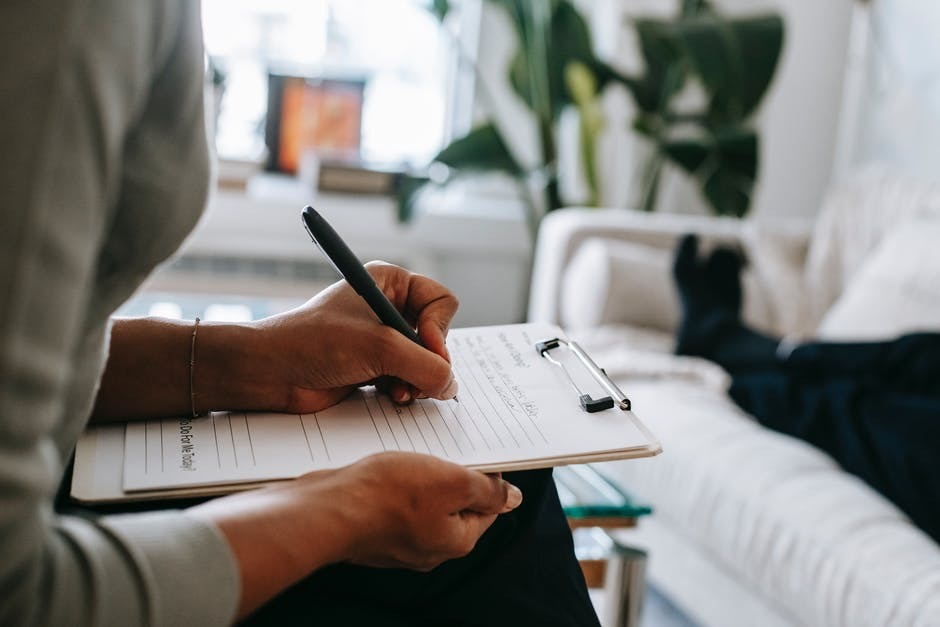If you are new to rehabilitation, undergoing an admissions assessment might feel scary or overwhelming. The information gathered during the evaluation will help your care team create a personalized treatment plan. Your admissions interview provides us with essential details about your needs and current health. According to the Substance Abuse and Mental Health Services Administration (SAMHSA), “Assessment comprises a medical and psychological history along with family, social, sexual, and drug use histories and a physical examination.†Newport Beach Recovery Center provides a comprehensive assessment for every new client to ensure they get access to appropriate treatment.
What Should You Expect?
Many people who undergo an admissions assessment have never received professional treatment for their substance abuse. According to the National Institute on Drug Abuse (NIDA), “For many people, drug and alcohol problems begin as self-medication: using substances to cope with temporary stress or to manage symptoms of chronic mental health problems they may not even know they have.†The comprehensive admissions assessment at Newport Beach Recovery Center will allow our admissions specialist to determine if there are any undiagnosed co-occurring disorders.
You can expect to do the following during an admissions assessment:
- Provide family medical history
- Disclose the substances abused along with how long, what dose, and how frequently they were abused
- Information on any past treatment or attempts at abstinence
- Give a detailed description of current thoughts, beliefs, and behaviors regarding substance abuse and treatment
- Undergo additional testing as needed
The more honest you are during this portion of the admissions process, the easier it will be for your care team to create a personalized treatment plan. If for some reason you can’t be fully honest, they can adjust your treatment plan later on in the process.
What Questions Do They Ask During an Admissions Assessment?
The questions you get asked during the admissions assessment will depend on a range of factors, including the type of substance and degree of symptoms. Your answers will provide a foundation for treatment and recovery.
Some of the questions you may have to answer about your history and experiences include:
- What is your mental health and substance abuse history?
- Have you ever undergone treatment for substance use disorder? If so, where, when, and what type of treatment did you experience?
- What substances have you used? When did you start and stop taking them? What amount did you take?
- Does your family have any history of substance abuse or mental health disorders?
The questions may seem very personal, and some people worry that the information they provide will be shared with family, coworkers, or law enforcement. Newport Beach Recovery Center does not break client confidentiality except in cases where legally required to do so. We believe that discretion and anonymous services provide more people with the opportunity to get help without shame.
What Information Should You Bring With You to an Admissions Assessment?
During the admissions process, you may need to provide the following information:
- Your family phone numbers or an emergency contact
- Details on any current medications, including the name, dose, and prescribing physician
- Any diagnosed mental health disorders
- Insurance card
You will provide a lot of information to set the foundation for your treatment. Some people find it helpful to call ahead of time to get a list of all the details they might need to provide.
How Are Admissions Assessments Used to Personalize Treatment?
Newport Beach Recovery Center uses the information provided during admissions assessments to personalize treatment. We believe everyone has unique traumas, needs, and preferences that can guide recovery. Our team will help you determine the best approach to treatment by offering our expert opinions. You will have the ultimate choice on your recovery goals and treatment plan.
An assessment can personalize treatment by doing the following:
- Identifying problem areas that need addressing
- Narrowing down possible treatment options
- Identifying undiagnosed co-occurring disorders
Try to go into the process with an open mind. Everything you share will ensure a more personalized rehabilitation experience.
What Are the Benefits of a Comprehensive Admissions Process?
A comprehensive admissions assessment can benefit individuals who are new to treatment or have recently undergone significant life changes. Our clinician will take into account any diagnosed or undiagnosed issues that might interfere with your ability to achieve and maintain sobriety. We understand that rehabilitation is complex, and you might need several levels of care before you feel confident in your recovery. You can rely on us to work beside you every step of the way.
The primary benefits of honestly answering questions for the admissions process include the following:
- Proposed treatment options will consist of only relevant services and programs
- The care team will have access to necessary details, including any instances of relapse
- Your care team will know what type of support will give you the most significant relief
The more you share with your care team, the better prepared they can be to help you overcome any unexpected challenges.
Some people who struggle with substance abuse might hesitate to get help because they do not know what to expect during the admissions process. One of the most important steps involves a comprehensive assessment that determines your physical and mental health. Newport Beach Recovery Center uses the admissions assessment to determine what treatment approach will work best for each client. During an admissions assessment, you will talk with a mental health professional who will diagnose your condition, get your medical history, and document any relevant information about your health. The information we gather from you during that meeting will provide us with essential details we can use for personalized treatment. To learn more, call us today at (855) 316-8740.










